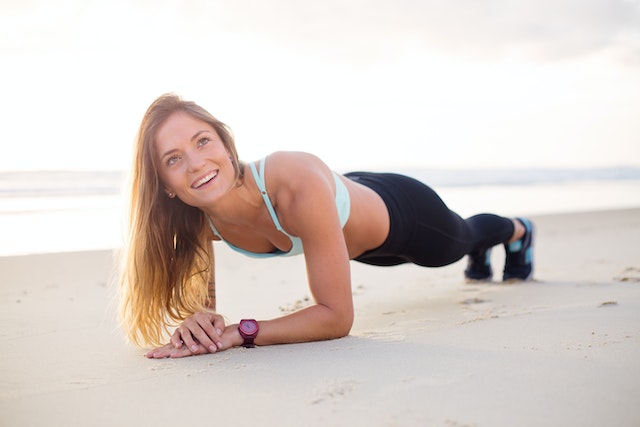
I never used to pay much attention to my diet, as long as I had enough energy to get through the day and hit the gym I was happy. But as I’ve gotten older, I’ve realized that my diet plays a huge role in my overall well-being and health. That’s why I decided check out what vegan fitness has in store and discovered the plethora of benefits of a vegan lifestyle.
There are a lot of misconceptions out there when it comes to veganism and fitness. Many people believe that if you eliminate meat and animal products from your diet, you won’t be able to build muscle or reach your fitness goals. But let me tell you, that’s simply not true.
Going vegan has actually helped me to become a stronger, leaner, and more energized version of myself. While it took a bit of time to adjust to my new way of eating, I’ve found that there are plenty of plant-based sources of protein that keep me fueled to crush my workouts.
Not only that, but removing animal products from my diet has also helped me to recover faster from my workouts. Animal products are often high in saturated fat and cholesterol, which can cause inflammation in the body and slow down the recovery process.
So if you’re considering going vegan and are worried that it will negatively impact your fitness goals, don’t be. In the next few paragraphs, I’ll dive into some of the ways that veganism and fitness can work hand in hand.
Understanding the basics of vegan fitness
There are some key points to keep in mind when it comes to vegan fitness.
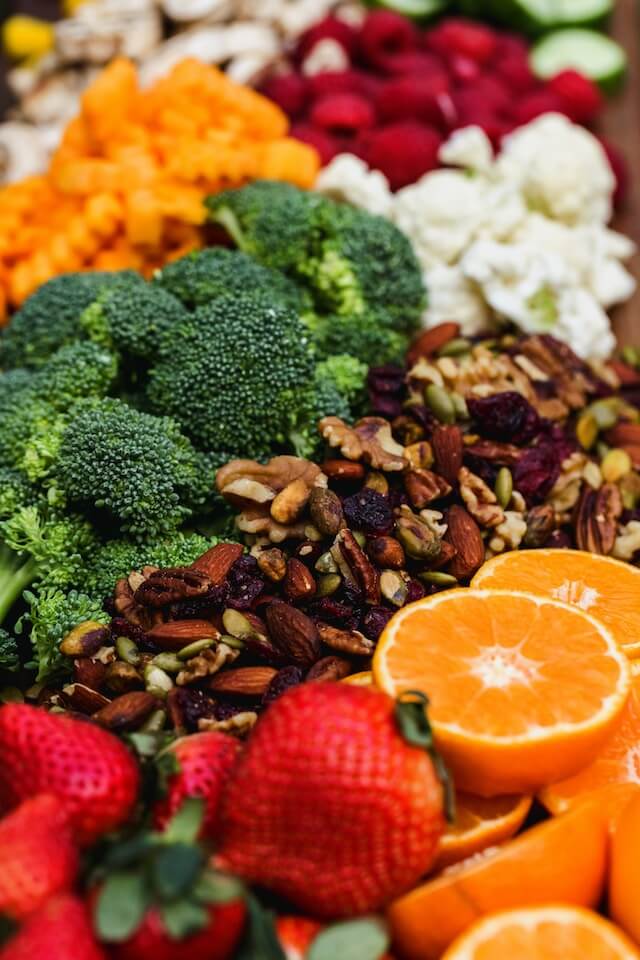
Ensure that you’re getting enough protein
Protein is essential for building and repairing muscles, and while animal products are often thought of as the go-to source of protein, there are plenty of plant-based options that can do the job just as well. Some great vegan sources of protein include beans, lentils, tofu, seitan, nuts, and seeds.
Eat a well-rounded diet
A diet that includes plenty of carbohydrates and healthy fats is ideal. Carbohydrates are your body’s main source of energy, so make sure to incorporate plenty of whole grains, fruits, and vegetables into your meals. Healthy fats, such as those found in avocado, nuts, and seeds, are also important for maintaining optimal health and energy levels.
Stay hydrated
It’s important to drink plenty of water throughout the day, especially during and after workouts. If you do a lot of intense exercises, you may also want to consider incorporating electrolytes into your hydration routine.
Listen to your body
Allow your body the rest and recovery it needs. While exercise is important for maintaining optimal health, it’s also important to give your body time to recover and rebuild. Make sure to get plenty of sleep, and consider incorporating activities like yoga or stretching into your routine to help reduce stress and promote relaxation.
Vegan protein sources
When it comes to vegan fitness, one of the most common concerns is where to get enough protein. But fear not – there are plenty of delicious and nutrient-rich plant-based sources of protein to choose from. Here are some of my favorites:
1. Beans and legumes: Black beans, chickpeas, lentils, and other legumes are an excellent source of protein, fiber, and other important nutrients.
2. Tofu and tempeh: Both tofu and tempeh are made from soybeans and are a great source of protein. They are also incredibly versatile and can be used in a variety of dishes.
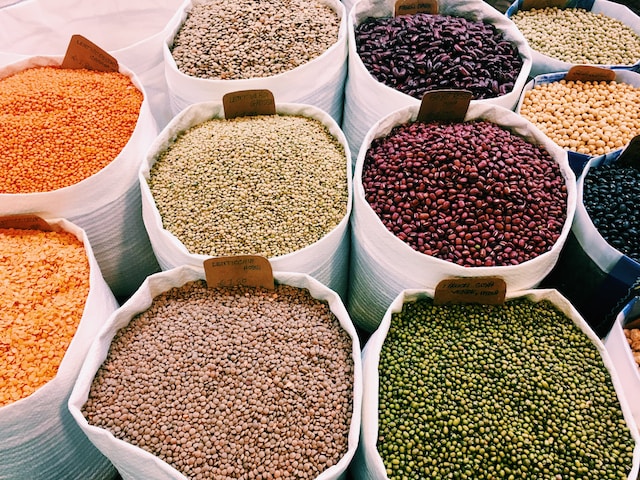
3. Seitan: Seitan is a protein-rich food made from wheat gluten. It has a meaty texture and is great for use in meatless dishes.
4. Nuts and seeds: Almonds, peanuts, walnuts, sunflower seeds, chia seeds, and other nuts and seeds are not only a good source of protein, but also contain healthy fats and vitamins.
5. Protein powders: There are also many vegan protein powders available, such as those made from pea, rice, or hemp protein.
It’s important to note that while protein is important for building and repairing muscle tissue, it’s also vital to eat a well-rounded diet that includes plenty of carbohydrates and healthy fats. By incorporating a variety of protein-rich plant-based foods into your meals, you’ll be sure to fuel your body for optimal performance and health.
Vegan meal planning for fitness
One of the key aspects of successfully adopting a vegan lifestyle for fitness is effective meal planning. Meal planning allows you to make sure you are getting all the necessary nutrients your body needs to thrive without sacrificing flavor, variety, or convenience. Here are some key tips for vegan meal planning for fitness:
1. Plan ahead: Dedicate time to plan your meals and snacks for the week. This will help you avoid impulse purchases and ensure that you have all the necessary ingredients on hand.
2. Focus on whole foods: Incorporate plenty of whole, plant-based foods into your meals. Choose fiber-rich options like fruits, vegetables, beans, lentils, and whole grains that will keep you feeling full and energized.

3. Prioritize protein: As discussed earlier, protein is essential for building and repairing muscle tissue. Make sure to include protein-rich foods like tofu, tempeh, seitan, nuts, seeds, and legumes into your meals and snacks.
4. Don’t skimp on carbs: Carbohydrates are an important source of energy for your body, so make sure to include complex carbs like whole grains, fruits, and vegetables in your meals.
5. Meal prep: Meal prepping can save you time and help ensure that you have healthy, delicious meals on hand. Dedicate a day or two each week to prepping ingredients or full meals that you can easily reheat when needed.
6. Snack smart: Healthy snacks can help keep you fueled and satisfied throughout the day. Opt for nutrient-dense options like hummus and veggies, smoothie bowls, or roasted nuts and seeds.
7. Track your progress: Keep a food journal to track your meals and snacks. This will help you stay accountable and make adjustments as needed to support your vegan fitness goals.
Don’t be afraid to get creative and experiment with new recipes and ingredients to keep your meals flavorful and exciting. With the right approach, veganism and fitness can work hand in hand to help you achieve your goals and thrive both physically and mentally.
Here are a few examples of meal plans for vegan fitness enthusiasts:
Meal Plan 1
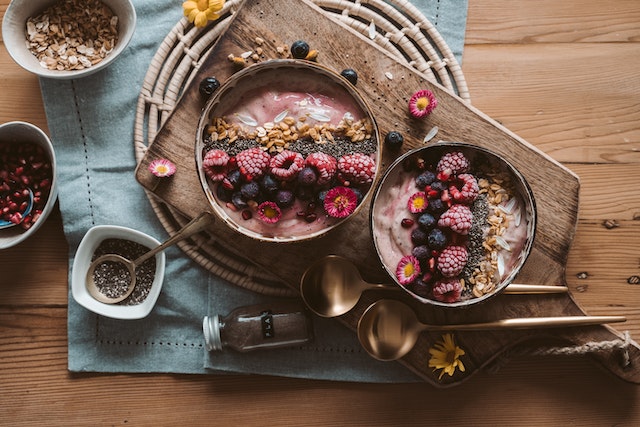
Breakfast: Smoothie bowl with almond milk, spinach, frozen berries, banana, and chia seeds
Snack: Apple slices with almond butter
Lunch: Chickpea salad with mixed greens, cherry tomatoes, cucumber, and lemon-tahini dressing
Snack: Energy balls made with dates, nuts, and coconut flakes
Dinner: Sweet potato and black bean tacos with avocado and salsa
Meal Plan 2
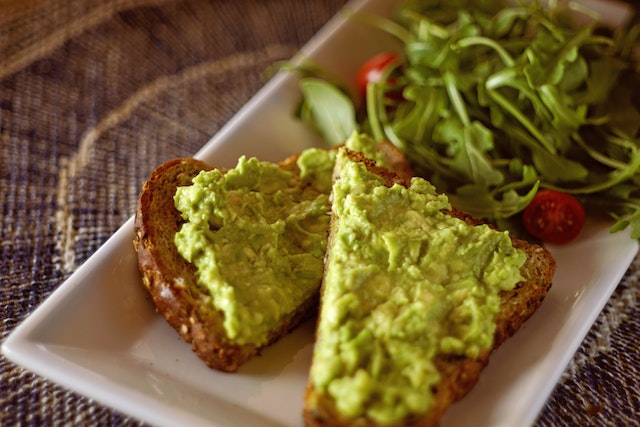
Breakfast: Avocado toast on whole grain bread with sliced tomatoes and a side of fresh fruit
Snack: Roasted chickpeas seasoned with garlic and paprika
Lunch: Grilled vegetable and tofu sandwich on whole grain bread with hummus and baby spinach
Snack: Vegan yogurt with mixed berries and granola
Dinner: Lentil and vegetable stir fry with brown rice and teriyaki sauce
Meal Plan 3
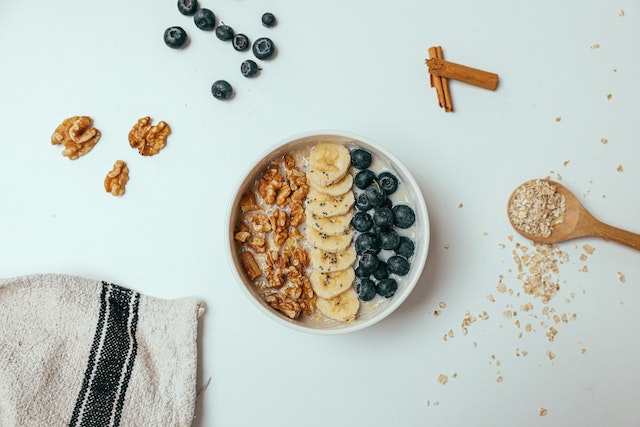
Breakfast: Oatmeal made with almond milk, topped with sliced banana, nuts, and cinnamon
Snack: Carrots and celery sticks with hummus
Lunch: Quinoa and black bean salad with diced avocado, cherry tomatoes, and cilantro-lime dressing
Snack: Protein smoothie with almond milk, frozen berries, and vegan protein powder
Dinner: Vegetable and chickpea curry with brown rice and naan bread
Remember, these meal plans are just examples – feel free to customize them to fit your own preferences and dietary needs. The key is to focus on whole, plant-based foods and to make sure you are consuming enough protein and healthy fats to support your fitness goals.
Supplements for vegan fitness
When it comes to vegan fitness, incorporating supplements into your routine can help provide additional support for optimal health and performance. While supplements are not a replacement for a well-balanced diet, they can help fill in nutritional gaps and support specific goals. Here are some supplements that may be beneficial for vegans:
1. B12: Vitamin B12 is an essential nutrient that is primarily found in animal products. As such, vegans are at a higher risk of deficiency. Supplementing with B12 can help support nerve function and red blood cell production.
2. Iron: Iron is important for oxygen transport within the body and is also involved in immune function. While plant-based sources of iron exist, they may not be as easily absorbed as iron from animal products. Supplementing with iron can help prevent iron deficiency anemia.
3. Omega-3 fatty acids: Omega-3 fatty acids are important for heart health and brain function. While there are some plant-based sources of omega-3s, such as flaxseed and chia seeds, supplementing with an algae-based omega-3 supplement may be beneficial.
4. Vitamin D: Vitamin D is important for bone health and immune function. While the body can synthesize vitamin D from sunlight, many people, especially those living in northern latitudes, may not get enough. Supplementing with vitamin D can help support overall health.

5. Creatine: Creatine is a popular supplement among athletes as it helps support muscle energy production. While creatine is often associated with animal products, it can also be synthesized from plant-based sources. Supplementing with creatine may be beneficial for vegans looking to increase muscle strength and endurance.
As always, it is important to consult with a healthcare provider before starting any new supplement regimen. With the right combination of supplements, a well-balanced diet, and a solid fitness routine, vegans can achieve optimal health and performance.
Making the switch
Switching to a vegan diet has been one of the best decisions I’ve made for my overall health and fitness. Not only have I become stronger and leaner, but I also feel energized and well-fueled for my workouts. It’s amazing how removing animal products from my diet has positively impacted my recovery time and reduced inflammation in my body. Planning my meals and incorporating a variety of plant-based proteins, healthy fats, and whole grains has been key to my success. And with the right combination of supplements, I feel confident in my ability to achieve my fitness goals while maintaining my ethics. I’m excited to continue on this journey and to see just how far vegan fitness can take me.